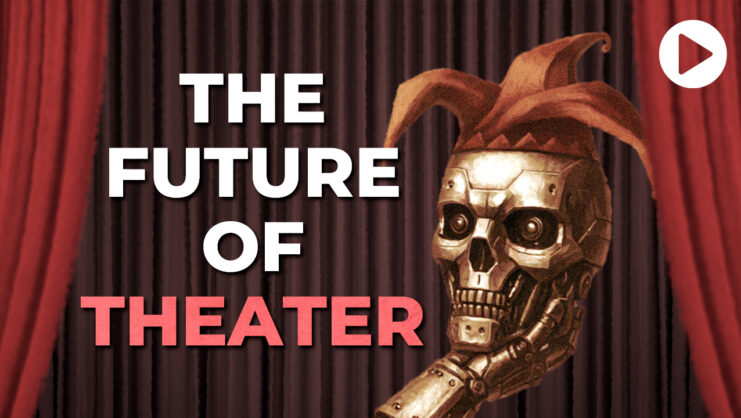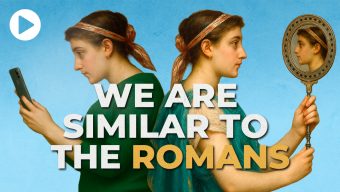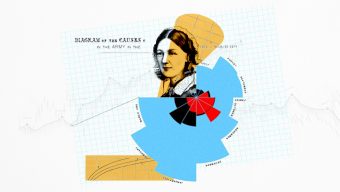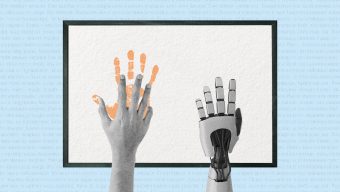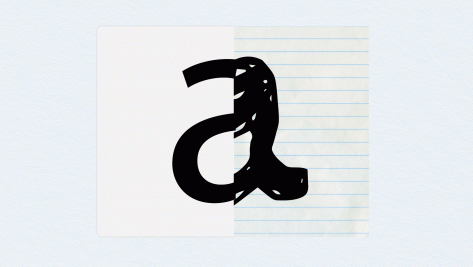Among the many legends of American business is the fact that Steve Jobs dropped out of college. It is true that he never graduated from Reed College, but he didn’t stop going to classes. “It was pretty scary at the time, but looking back it was one of the best decisions I ever made,” Jobs explained in a now-famous Stanford University commencement speech. “The minute I dropped out, I could stop taking the required classes that didn’t interest me, and begin dropping in on the ones that looked interesting.” At the time, Reed College offered one of the best calligraphy courses in the country and so Jobs took up this seemingly impractical pursuit. In hindsight, we can now see why Jobs enjoyed the artistry involved: the polished curves, the historical lineage, the subtle interplay of form and function. Calligraphy was an activity apparently devoid of practicality, lacking any immediate application. And yet, a decade later, this almost random and inconsequential decision – and the experience and knowledge that came from it – would resurface when Jobs embarked on designing the first Macintosh computer.
Jobs designed the Mac with elegant typography, employing aesthetics as a distinctive attribute of Apple products, and thus began a revolution in product design. Years later, the elegant simplicity of the iPod had an influence that rippled far beyond music, raising consumer expectations, and forcing manufacturers across industries to prioritize design excellence as a core value.
This anecdote embodies the essence of “Knowledge Intelligence” (KQ), a concept that is crucial for navigating the complexities of our current world and the business landscape. The calligraphy classes that Steve Jobs took had an impact on his knowledge base that became the seeds of innovation and enabled him to challenge paradigms and even redefine industries. It evidences the unexpected connections knowledge, in the sense of the union of curiosity and interdisciplinary exploration, can unearth.
KQ transcends mere information accumulation; it symbolizes the combination of diverse knowledge domains, the harmonization of seemingly disparate threads, and the elevation of the human mind beyond the borders of specialization. As Sir Alistair MacFarlane so carefully defined the concepts – and their distinctions – of information, knowledge, and intelligence: “Information describes: it tells us how the world is now. Knowledge prescribes: it tells us what to do on the basis of accumulated past experience. Intelligence decides: it guides, predicts, and advises, telling us what may be done in circumstances not previously encountered, and what the outcome is likely to be.”
KQ shares affinities with existing concepts like IQ (intelligence quotient), EQ (emotional quotient), and CQ (cultural intelligence). While IQ measures cognitive ability, EQ gauges emotional intelligence, and CQ assesses cultural awareness, KQ encompasses the breadth and depth of knowledge coupled with the ability to utilize it creatively and critically. We can think of it as the glue that binds information to application, transforming mere facts into powerful tools for problem-solving and innovation.
Sharp minds cannot be restricted by the narrow boundaries of industry specialization.
The humanities and liberal arts education play a central role in developing KQ as they foster critical thinking, effective communication, and a broadened understanding of the world – precisely the skills that equip individuals to analyze information, draw connections across disciplines, and tackle challenges with informed creativity. By learning from diverse arts and fields, one gains fundamental insights into the human condition, developing an interdisciplinary approach that can be applied to everything from business strategy to personal relationships.
Why should future leaders embrace KQ? It’s not just about career success; it’s about being a well-rounded individual. In the 20 years I worked as an advisor for top executives, I found that leaders with high KQ have a deeper understanding of businesses, situations, and the world, allowing them to navigate complex landscapes with agility and foresight. They also possess enhanced communication skills and can articulate their ideas effectively, fostering collaboration and inspiring others.
Educating oneself is a good start to improving one’s KQ and there is an abundance of well-known leaders with a reading habit: Bill Gates reads over 50 books a year, Mark Zuckerberg publicly discusses thought-provoking books in his reading club, and Warren Buffet encourages everyone to incorporate reading into their daily routine, saying: “Read 500 pages like this every day. That’s how knowledge builds up, like compound interest.” Sharp minds cannot be restricted by the narrow boundaries of industry or product specialization. Vibrant intellects sharpen their minds and broaden their perspectives.
KQ equips individuals with thought-leadership competence. Knowledge of diverse topics, from global affairs to technology, empowers individuals to contribute meaningfully to discussions and influence others. Leaders with KQ can integrate critical analysis, creativity, and cultural awareness to envision and actively participate in shaping the future, especially in the dynamic territory of technology. Take the recent trend of business leaders embracing stoicism; they seek not a philosophical fad but a holistic perspective on life and a set of practical principles to guide them through turbulent times.
Interestingly, KQ bridges the gap between personal and societal goals. It equips individuals to address daily struggles and global challenges with informed action. Engaging with the arts, social sciences, and humanities enhances our ability to discern human creativity and navigate life’s unexpected turns. We gain empathy, critical thinking skills, and a deeper understanding of the world’s complexities.
So, how can individuals cultivate their KQ? While devouring books is a key part of the process, building Knowledge Intelligence requires a multipronged approach. Perhaps the secret sauce is a broad and well-rounded education, embracing the humanities and liberal arts. Exposing oneself to diverse subjects encourages making connections across disciplines. The breadth of knowledge is essential, for it leads to a deeper understanding of the world’s richness and interconnectedness rather than the limitations of specialization. There are no prerequisites or predefined paths; follow your curiosity, explore literature, arts, history, philosophy, or science – any mix that ignites your passion. The joy of discovery lies in reading, touring, learning, exploring, discussing, and thinking. These activities challenge our assumptions, inspire us, and lead to breakthroughs that illuminate the past, shape the present, and pave the way for a brighter future.
However, in contemporary academia, liberal arts education faces a stark decline as enrollment drops across colleges and universities, succumbing to the growing preference for programs explicitly tailored to the job market. This trend mirrors a broader societal shift towards an education system that prioritizes technical skills over the intrinsic value of broad-based learning.
Students and parents, anxious about financial stability and job prospects, often view humanities degrees as impractical luxuries rather than essential components of a well-rounded education. This perspective is further fueled by policymakers and educational institutions that prioritize funding and support for technical and STEM fields, leaving humanities programs to fade. Yet, this trend risks sidelining the vital contributions of the humanities, which are indispensable for nurturing critical thinking, ethical deliberation, and a deep understanding of the human condition.
Critics argue that humanities and liberal arts disciplines are superfluous in an economy driven by technological advancements and specialized skills. Yet, this perspective overlooks the profound role these fields play in fostering critical thinking, cultural awareness, and ethical reasoning—qualities essential not only for an individual’s personal development but also for shared progress in society.
Proponents of the liberal arts argue that a well-rounded education not only bridges the gap between personal aspirations and collective well-being but also cultivates thought leaders who can navigate and shape an increasingly complex world with wisdom and empathy. As we steer through an era of rapid change and uncertainty, the enduring merits of the humanities and liberal arts beckon a reassessment, urging us to embrace their timeless contributions to both individual fulfillment and societal advancement. They are not restricted to undergraduates in pursuit of fundamental insights into the human condition, rather they are related to the concept of lifelong learning, building a person’s KQ, and instilling a love for learning that equips them with the skills to continue building their education throughout their life. Furthermore, the knowledge inherent in humanities and a liberal arts education can be discovered both inside and outside of the classroom, and is available to anyone and everyone, regardless of industry, status, or stage in life.
An executive can read Antigone or simply learn the basics of the Greek myth on which Sophocles built the play, and they will still understand why we still discuss her: Antigone is not just a rebel against injustice, she is our conscience, reminding us to do what is right. This is the power of KQ – it prepares us not only to be better leaders but also to be better versions of ourselves, fostering deeper connections, navigating life’s complexities, and shaping a future fuelled by informed curiosity and courage.
So, dear reader, embark on your KQ journey today – the world awaits the tapestry of connections your curious mind will weave.
© IE Insights.




